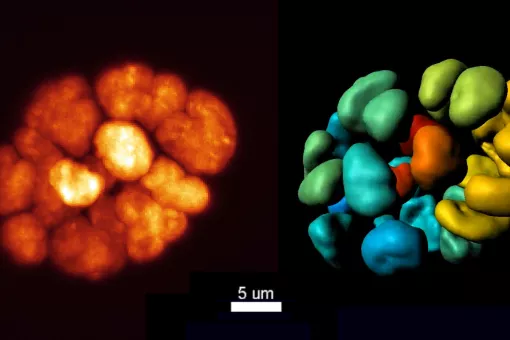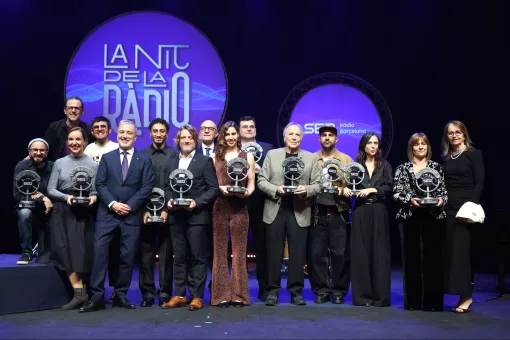Images
IRB Barcelona will study key proteins related to the abnormal growth of the heart and arteriosclerosis.
2007 “"La Marató de TV3" will devote more than 7 million euros to funding 26 research projects that address cardiovascular diseases. Among the projects awarded is that headed by Miquel Pons, group leader at the Institute for Research in Biomedicine (IRB Barcelona), who will study “Unique domains of the Src kinase family implicated in cardiovascular diseases”, which has received funding amounting to 199,725.63€.
The proteins kinases of the Src family participate in diseases such as cardiac hypertrophy, a condition of abnormal growth of the heart that can lead to myocardial infarction, or arteriosclerosis, the formation of plaques in arteries that causes rigidity and narrowing, which can produce obstruction.
The study of some most particular tails
The folded regions of the different proteins that comprise the Src family kinases (SFK) resemble each other; however, in contrast, they differ completely in an unfolded tail that is known as the unique domain (UD) and that distinguishes them from other members of the family. There is a solid hypothesis that the UD of SFK holds information on regulation and interaction with other proteins. In a recent epidemiological study on elderly individuals in Japan, it was discovered that a mitochrondrial protein with cardiovascular protective effects and that prevents the formation of plaques interacts with the UD of the Src protein, which gives the name to the family. In spite of this evidence, little is known about the UDs of SFK due to the complexity of native unfolded domains. Pons’ laboratory will focus on the study of the UDs of four FSrcs that have been localized in mitochondria, the structure and function of which are totally unknown but may be relevant in the generation or prevention of cardiovascular diseases.
Pons’ team has established three objectives to fulfil in the three-year project. The first is to describe the UDs through Nuclear Magnetic Resonance (NMR) and Small Angle X-ray Scattering (SAXS), the most powerful techniques to study flexible proteins in solution. The second objective is to find other mitochondrial proteins that interact with the UDs of the four SFK under study. Finally, the third objective seeks to modify these UD mediated interactions by means of small molecules (future drugs). The unique characteristics of UDs makes them promising targets to design molecules that interact selectively with a given SFK without affecting the whole protein family.
The project will be developed by the scientists Pau Bernadó and Yolanda Pérez, together with the PhD students Giovanni Cincilla and Jascha Blobel, under the direction of Miquel Pons. Collaborations will also be established with researchers at the University of Warwick in the UK.
The 2007 call for funding received applications from 159 projects, which have been evaluated by 145 international experts. The selection has been made in function of project relevance, quality and methodological rigour, in a process that has been managed by the "Agència d’Avaluació de Tecnologia i Recerca Mèdiques" of the Depatment of Health of the "Generalitat de Catalunya" (Government of Catalonia). In its 16 previous events, "La Marató de TV3" has assigned almost 65 million euros to 490 biomedical research projects.
About IRB Barcelona
The Institute for Research in Biomedicine (IRB Barcelona) pursues a society free of disease. To this end, it conducts multidisciplinary research of excellence to cure cancer and other diseases linked to ageing. It establishes technology transfer agreements with the pharmaceutical industry and major hospitals to bring research results closer to society, and organises a range of science outreach activities to engage the public in an open dialogue. IRB Barcelona is an international centre that hosts 400 researchers and more than 30 nationalities. Recognised as a Severo Ochoa Centre of Excellence since 2011, IRB Barcelona is a CERCA centre and member of the Barcelona Institute of Science and Technology (BIST).





